Mobile prison used to teach children about crime
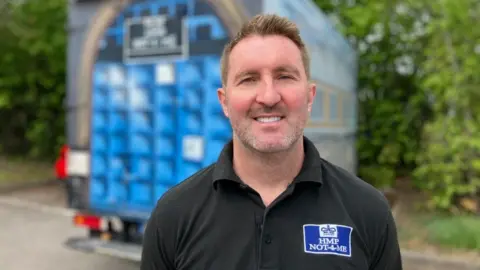 BBC/ Nicola Rees
BBC/ Nicola ReesA mobile prison cell, complete with bunk beds and a metal toilet, is visiting primary schools to teach children about crime.
The project, HMP Not-4-Me, was set up by former West Yorkshire Police officer Mick Amos who converted a van to look like a jail.
He said allowing children to experience prison life can "inspire them to make good choices".
During a visit to Crigglestone St James Academy in Wakefield, pupils were put through a mock custody procedure and 'locked up' for a few minutes.
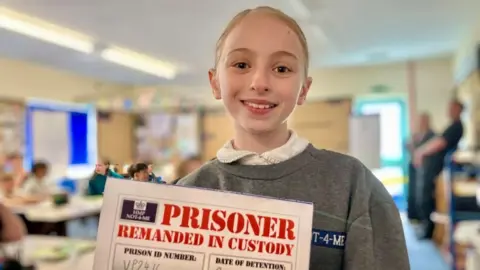 BBC/ Nicola Rees
BBC/ Nicola ReesYear 6 pupil Ava said the cell was "disgusting" and being inside made her feel claustrophobic and anxious.
"It was really sad to see all the cards and pictures on the walls and to think about not being able to see your friends and family," she said.
As part of the interactive experience the children were issued with prison jumpers and had their fingerprints and photographs taken.
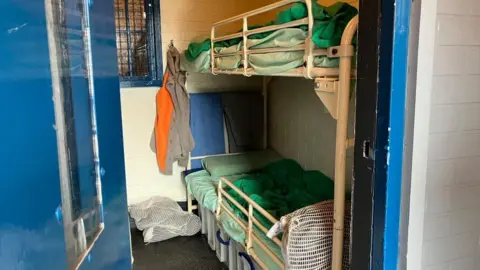 BBC/ Nicola Rees
BBC/ Nicola ReesMr Amos, who also plays a police officer on Coronation Street, said the project was "not a scare tactic" and that targeting primary-age children was important.
"Children can be arrested when they are 10 years old so they deserve to know about their responsibilities," he said.
The project will visit 25 primary schools in Wakefield.
It is being paid for by the Mayor's Safer Communities Fund which takes money seized from criminals in West Yorkshire and reinvests it into local organisations and community groups.
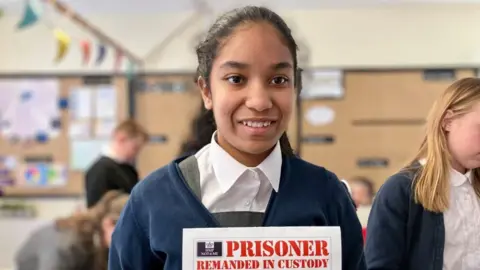 BBC/ Nicola Rees
BBC/ Nicola ReesMr Amos said he saw "a lot of good people get steered down the wrong path" during his 11 years as a police officer.
"Anyone can make a mistake and then there is a devastating impact on the person and also on their family and friends," he said.
"Early intervention is key so I show them what it's like to have your freedom taken away and that can be really impactful."
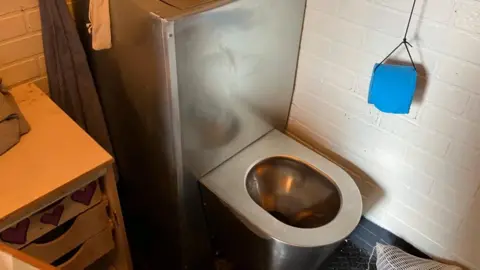 BBC/Nicola Rees
BBC/Nicola ReesThe portable prison is also taken into youth clubs, sports clubs and other organisations.
During the sessions young people are given advice on drugs and alcohol as well as issues like sharing explicit images on social media and violence against women and girls.
Mr Amos said no topic was "off limits".
He added: "Obviously it's about engaging them and the kids do have a lot of fun but there is a serious message about social boundaries and the rule of law.
"There is a lot of peer pressure with social media so we look at how the choices we make have consequences."
